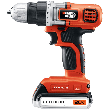How to Insulate Your Home
Written by Lee Wyatt (last updated June 11, 2021)
Many people don't realize how to insulate their homes properly. Insulating your home properly takes more than going to your local home improvement store, finding the highest rated insulation there, and then throwing it up on the walls or on the floor of your attic. In fact, the proper method for how to insulate your home actually begins before you even go to the insulation isle of the home improvement stores. By knowing what this method is, you will not only save some serious money during the winter months, but all year round.
- Conduct an inspection. If you are really interested in making sure that your home is properly insulated, you need to conduct an inspection. This inspection needs to be as thorough as possible, and you need to look over your home from top to bottom. When you are doing your inspection take a look at all the available weather stripping, and insulation to see what kind of condition they are in. Make a note of any problem areas and have them fixes as quickly as possible. When looking at the insulation you want to check and make sure that the insulation isn't wet, damp, or moldy, and that it looks to be in good condition. Look for any drafts, and any damaged or worn out weather stripping.
- Conduct a thermal inspection. To really see how well your home is insulated, look into getting a thermal inspection done. These are usually conducted with an infrared camera that can see if there are any areas that heat is leaking. Since these types of cameras can be fairly expensive, it is a good idea to rent one, or to hire someone to do the thermal inspection for you. Make note of where any problem areas are, and then do a closer inspection of those areas and if necessary fix the problem. Keep in mind that sometimes fixing a problem area may include conductions some serious renovations.
- Learn your options. Another important step in how to insulate your home is learning what your options are, and what the requirements for your area are as well. Not all homes throughout the country need to be insulated the same way. For example, homes in Alaska really don't need the same type of insulation that a home in Arizona would need. Look into what the building code for your particular area says, and then see about the various different types of insulation there are that can help you achieve that required level of insulation.
- Hire a professional. Considering how much renovation can be involved in insulating a home, it is always a good idea to hire a professional to help you get the job done. While it may be more expensive, the experience that comes from hiring a professional can be well worth the price. Just make sure that you thoroughly interview all the potential candidates before you make your final decision about who to hire.
Author Bio
Lee Wyatt
Contributor of numerous Tips.Net articles, Lee Wyatt is quickly becoming a regular "Jack of all trades." He is currently an independent contractor specializing in writing and editing. Contact him today for all of your writing and editing needs! Click here to contact. Learn more about Lee...
Preventing Garbage Disposal Odors
It is always better to prevent something bad from happening then wasting time and money on fixing something, that could ...
Discover More
What is Roux?
Have you ever watched one of those cooking shows on television, and heard the term roux before? Unless you know what it ...
Discover More
How to Re-Establish Your Credit
There are a lot of reasons why you would want to re-establish your credit. It could be that you just got out of a ...
Discover More
More Home Improvement Tips
LED Lighting
While still relatively new, LED lighting has become an energy efficient and safe alternative to traditional, thermal ...
Discover More
Choosing Energy Efficient Light Bulbs
It is becoming more and more popular to make the home as energy efficient as possible. One of the more common methods ...
Discover More
Saving Money with CFLs
If you want to stretch your energy dollar even farther, place your CFLs on a dimmer, timer, or motion sensor switch. That ...
Discover More

Comments